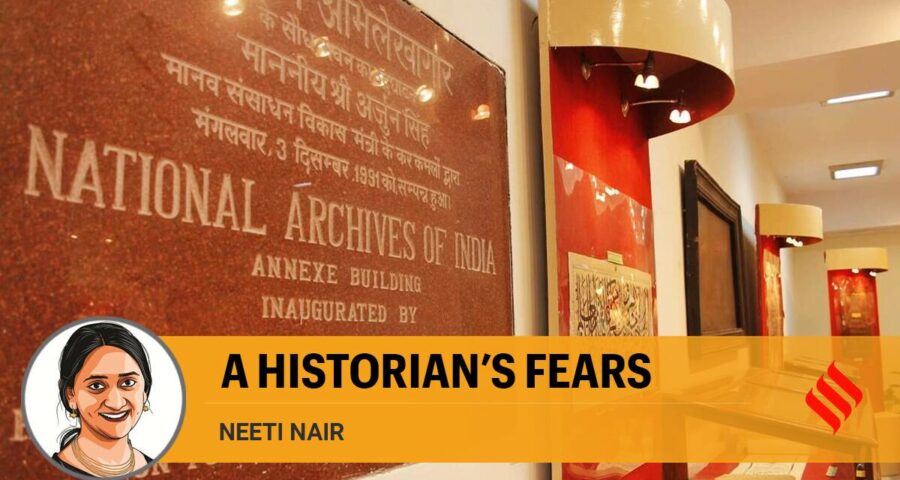Critical files will get lost, destroyed or simply abandoned, given the nature of the undertaking.
The National Archives’ “Annexe” is, for most scholars of the 20th century, the National Archives. The “Research Room” is where we spend years conducting archival research for our dissertations and, later, books. This is a space of national integration, if you will, where primary sources can be knit together to weave the story of a ministry, its relationship of give-and-take with states across India, and explain the crafting of a national policy. This is where I used to return each year, to recharge and replenish my historian’s craving for primary sources. This is where I made some of my most enduring professional friendships, sharing, in 2002-03, the one power source that was then available to charge our laptops. One also shared, with a sense of wonderment and immediacy, one’s latest findings over a cup of chai at the dhaba under the tree which served Delhi’s best kadak chai and delicious lunch, to scholars as well as the denizens of various offices that dotted that stretch of Janpath.
The proposed demolition of the annexe does not inspire confidence. We, who have worked in the Research Room, know the conditions of the files — how often have we been told that a file cannot be photocopied, for it is too brittle. What are the government’s plans to protect these fragile documents? All of us who use and cherish its holdings, and whose scholarship is studied and read in India and abroad, fear a disaster.
The National Archives Annexe also hosted technical training in preservation and allied subjects for archivists across India. Will the new proposed building also include archivists in its space? Will it allow for the kind of inter-generational conversation that was made possible in the open spaces outside this archive?
Every writing is a revision, a necessary rewriting of the past. The demolition of the annexe and the uncertainty over its collection may affect the kind of narratives we are able to craft. So long as scholars are able to access regional and state archives across India, they will be able to write regional histories. So long as they are able to collect oral histories, they will be able to tell stories of past struggles and successes that might have not been deemed worthy of “official” archives. So long as there are other kinds of institutional archives and private archives, they will be able to write those histories.

Will the new move imperil the historian’s work in seeking answers to these questions? It is ironic that the successor of the Jana Sangh, which prided on speaking for the nation and for national integration, the Bharatiya Janata Party, should preside over a project that makes writing that kind of history, a “master-narrative” of India’s immediate past, fraught.
As for writing a “decolonised history”, it is the quality of mind that one brings to bear on the files, as well as the nature of the archives, that is of consequence. We can, and do, get lost in our questions of and from the archive. That is part of the research process. But we also need to step away from the archive, and grapple with our “core” questions on our own. What drives us to tell that history, and answer that question? Whose perspective do we choose to foreground, and why? These are questions that are central to the writing of any history; they are sometimes derived from the nature of the archive we get to know and live with, but are equally, if not more often, derived from our own social location and experience of the world outside the archive, and the politics of the current moment.
All PhD students spend a year of their programme doing “fieldwork”. This typically entails spending time in multiple archives related to their project. Demolishing the annexe is a project of gargantuan proportions. PhD scholars who have not yet started dissertating will survive; they will find research subjects that do not require use of the country’s national archive. But the scholars who have already embarked on their programme are worried. For many, it might be too late to change research plans because they have already secured funding for their proposed research topic that entails the use of this archive, and so they are looking with fear at the loss of a whole year of fieldwork, of their programme, potentially many years, which most cannot afford. Other scholars who have already secured funding for their second projects based on access to the National Archives could also be in limbo. There is very little information in the public domain to assuage their fears.
In the new space, wherever it will be and whenever it is built, scholars may well discover that files are missing because that is simply inevitable in a project of such a scale. That has already happened to me, when a file I consulted in, say, 2009, was declared “NT” or “Not Transferred” (from the ministry) two years later. It took persistent letter-writing, the resubmission of requisition slips, for the errant file, still waiting to be reshelved, to be found.
I fear that critical files will get lost, destroyed or simply abandoned, in this move. This is a given, in the nature of the undertaking that is being attempted, in the opacity of the move, and it is an entirely avoidable tragedy.
This article first appeared in the print edition on June 12, 2021 under the title ‘A historian’s fears’. The writer is an associate professor of history at the University of Virginia. She is the author of Changing Homelands: Hindu Politics and the Partition of India, Harvard University Press and Permanent Black, 2011.
Source: Read Full Article


